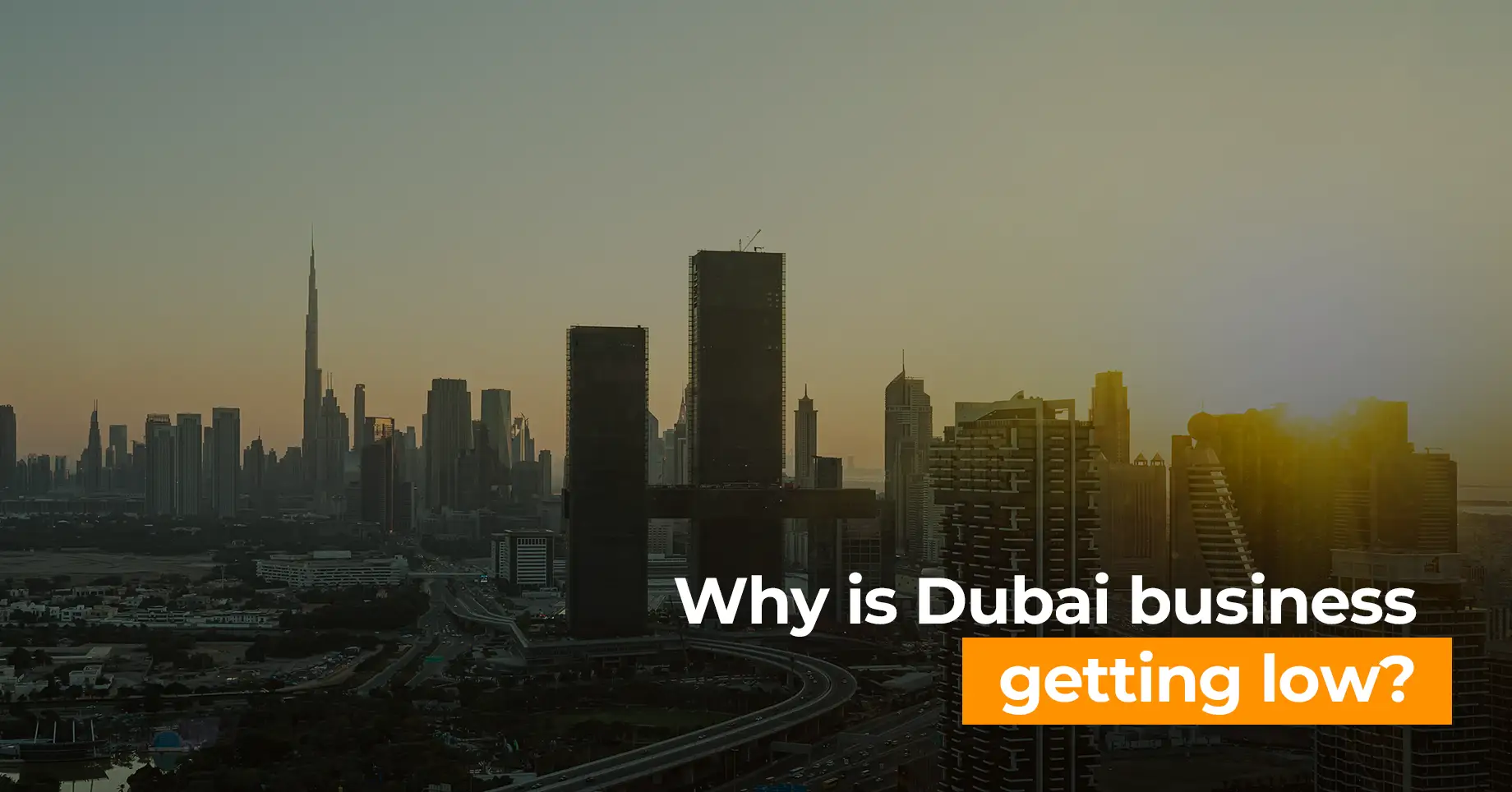Dubai, once the shining example of global business, has delighted entrepreneurs and investors with its dynamic market, strategic location, and favorable regulations. Yet, as we wade through 2024, the successful business scene is showing signs of decline. To navigate this shifting landscape effectively, it is essential to study the emerging concerns and factors contributing to this downturn.
1. Economic Uncertainty and Market Saturation
Dubai’s its rapid growth and diversification over the past decade have been impressive, they have also resulted in a degree of market saturation that now challenges the business ecosystem. The relentless inflow of companies has produced intense competition, especially in sectors like real estate, retail, and hospitality. This saturation is deepened by global economic uncertainties and volatile oil prices. The result? A challenging environment where achieving profitability has become an uphill battle, and many businesses are grappling to sustain their positions in the Dubai business market.
2. Regulatory Changes and Increased Costs
In the search to refine the Dubai business environment, recent regulatory reforms have, in some respects, set higher operational costs. While these changes are generally beneficial, they have introduced more stringent compliance requirements and additional financial burdens. For instance, new labor laws, licensing protocols, and corporate tax regulations have increased the complexity of running a business. This has particularly impacted small and medium-sized enterprises (SMEs), which are now navigating a maze of new regulations and costs.
3. Impact of Global Economic Conditions
The global economic climate casts a long shadow over Dubai’s business landscape. Factors such as trade tensions, geopolitical instability, and market fluctuations can corrupt investor confidence and shift spending patterns. In 2024, the waves of these global uncertainties are distinctly felt within the Dubai business market, influencing both consumer behavior and investment trends. Businesses must adapt to these global shifts to maintain their competitive edge.
4. Shifts in Consumer Preferences
Dubai's consumer preferences are evolving at a breakneck pace, increasingly favoring sustainability and digital innovation. Traditional business models that resist these face the risk of becoming outdated. For example, enterprises failing to integrate digital transformation or provide eco-friendly products may struggle to capture the market’s attention. The demand for innovation and sustainability has never been higher, and businesses must pivot swiftly to align with these evolving consumer values.
5. Challenges in the Real Estate Sector
Once a cornerstone of Dubai’s economic boom, the real estate sector is now facing a significant slowdown. Overbuilding has led to an oversupply of both commercial and residential properties, driving down rental rates and occupancy levels. This downturn rolls through various dependent sectors, including retail and hospitality. New entrants to markets in the Dubai business are finding it increasingly difficult to establish themselves among these adverse conditions.
6. Competition from Other Emerging Markets
Dubai's importance as a business hub is now being challenged by rising competitors in the region. Cities such as Abu Dhabi, Riyadh, and Doha are aggressively developing their business environments, attracting significant investment. This regional competition is not only a nuisance but a substantial force that diverts attention and resources away from Dubai, thereby altering the Dubai business environment.
7. Impact of COVID-19 Aftermath
The echoes of the COVID-19 pandemic continue to ripple through Dubai’s business scene. Despite a robust recovery, the pandemic’s legacy remains, influencing work patterns, travel behaviors, and consumer habits. These residual effects contribute to a cautious market environment, where businesses must wrestle with the long-term impacts of the pandemic on their operations.
FAQs
Q: How have recent regulatory changes impacted businesses in Dubai?
A: The latest regulatory changes have introduced higher compliance costs and more strict requirements. While planned to enhance the Dubai business environment, these modifications can be demanding, particularly for SMEs, complicating their operational landscape.
Q: What sectors are experiencing the most significant slowdown in Dubai?
A: The real estate sector is particularly affected by oversupply and declining rental rates. Additionally, traditional retail and hospitality sectors face challenges due to evolving consumer preferences and intensified competition within the Dubai business market.
Q: How is global economic uncertainty affecting businesses in Dubai?
A: Global economic uncertainty, including trade tensions and geopolitical instability, influences investor confidence and consumer spending, contributing to a more cautious and variable market environment in Dubai.
Q: What strategies can businesses use to adapt to the changing market conditions in Dubai?
A: To navigate the shifting conditions, businesses should embrace digital transformation and sustainability. Diversifying offerings, optimizing operations, and targeting emerging market segments can help address current challenges in Dubai's business.
Dubai remains a city of immense opportunity, yet the factors contributing to the decline in business activity require careful consideration. By recognizing these challenges and adapting strategies accordingly, businesses can better position themselves for achieving success in an evolving market
